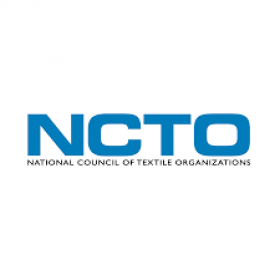EPTA highlights contribution of pultruded composites to sustainable construction
Increasing energy and resource efficiency in the construction sector will be key to the EU’s ambition of achieving climate neutrality by 2050. By enabling the manufacture of strong, durable and lightweight products, composite materials can help the construction sector improve its environmental sustainability, as well as reduce total lifecycle costs. The latest EPTA industry briefing, Pultruded composites contribute to a more sustainable future for construction, discusses how pultruded composites answer the need for materials offering high performance, faster installation, corrosion resistance and low maintenance.
The report is available to download from the EPTA website.
The future of construction
As one of the largest global users of energy and raw materials, the construction industry is under immense pressure to improve its sustainability. At the same time, it must respond to demands for improved performance and reduced total cost of ownership. New materials will be needed to minimise the use of natural resources, enable a reduction of carbon footprint and facilitate circular economy practices. Choosing the optimum materials required for durability throughout the lifecycle will be increasingly important. A shift to off-site production is also forecast, where factory-controlled environments and automated processes can improve quality control, lower waste, and reduce work on site.
Lightweight pultruded parts can be pre-assembled into modules or complete structures in the factory for faster installation on site. Lightweight profiles lower energy use during transportation and installation, and a longer service life combined with minimal maintenance can deliver a reduced through-life carbon footprint. Pultruded parts such as profiles, gratings, beams, tubes and planks are increasingly found in a range of building, construction and infrastructure applications. Examples include bridge decks, fencing, stairs and handrails, train platforms, cladding, utility poles, modular building concepts, and window frames.
One application offering large growth potential for composites is bridges. Composite bridges are being designed to provide a service life of 100 years and unlike steel bridges do not require regular repainting to protect them from corrosion. Over recent years, pultruded glass fibre composite has become a highly popular choice for pedestrian and cycle bridges. Pre-fabricated ‘easy fit’ bridge decking planks, pre-assembled bridge modules and complete bridge ‘kits’ are now available. Corrosion-resistant composite bridges are ideal for use near water or on the coast, and in remote locations where regular maintenance operations would be difficult. A composite bridge can deliver the same performance as a steel structure with a weight saving of up to 50% or more. This enables more streamlined bridge designs which require less substantial supporting structures and foundations, greatly reducing consumption of materials and energy. Lightweight also results in easier logistics and simplified installation. Pultruded are more easily transported to the construction site, with lower fuel consumption, and easier to move on site, often reducing labour requirements and the capacity of lifting equipment.
A lifecycle approach
As the construction industry looks to the future, the environmental and economic benefits of composite materials linked to easier logistics and installation, durability and low maintenance are becoming increasingly valued. More projects are demonstrating the benefits of composite materials and standards covering the design, fabrication and installation of pultruded profiles are making it easier for the construction industry to use them. With ongoing development and collaboration, pultrusion has the potential to contribute to a more sustainable future for construction and many other industries. EPTA will continue to promote the advancement of pultrusion technology and its applications and foster sustainable practices within the industry.
European Pultrusion Technology Association EPTA pultrusion Composites construction industry
The European Pultrusion Technology Association (EPTA)








